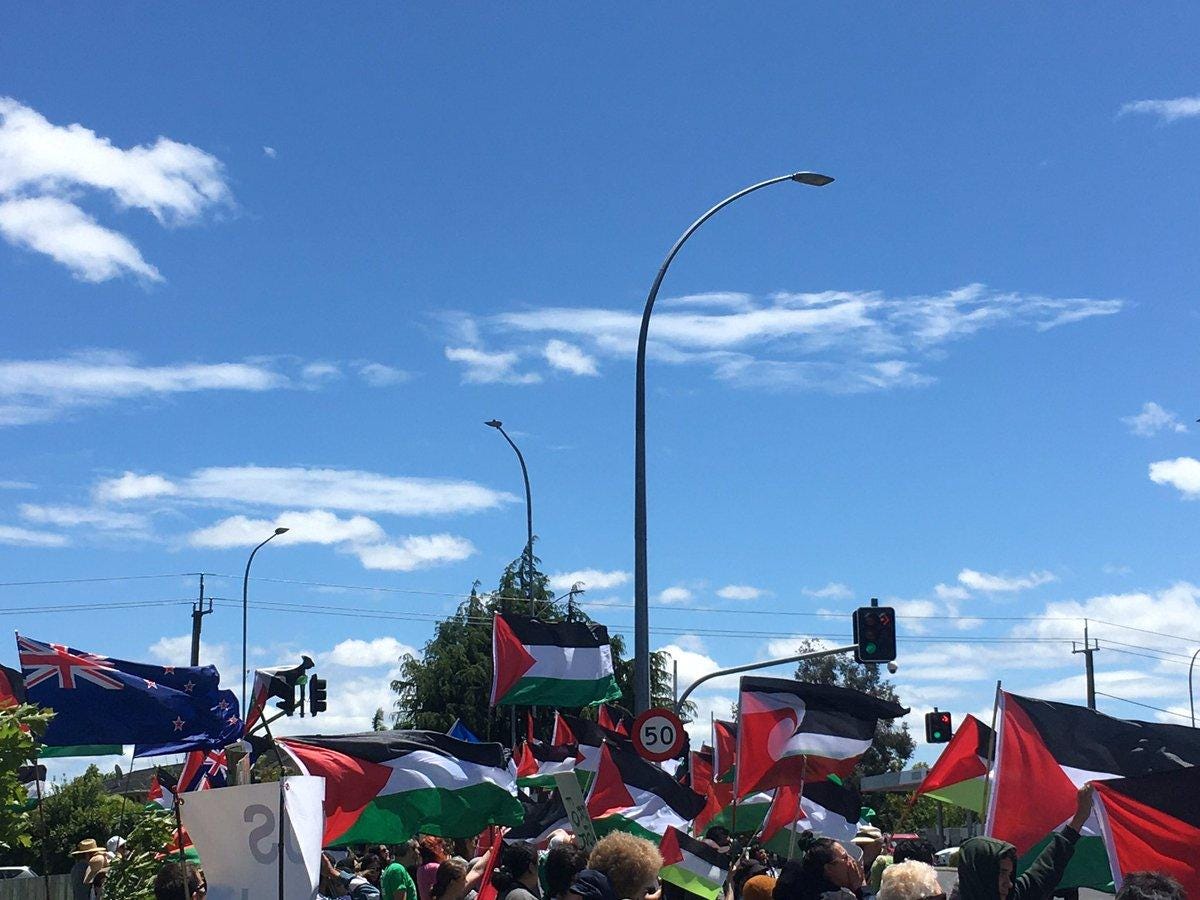A ceasefire and beyond
While a ceasefire now is important to stop the current killing and destruction in Gaza, there is a need to address the underlying issues, namely, occupation and discrimination
Tameem Shaltoni is a Palestinian New Zealander, born in Jordan to a family of Palestinian Arab refugees. Here he reflects on the call for a ceasefire in Gaza and what’s next.
For the last 8 weeks, tens of thousands of New Zealanders have been marching up and down the streets of this country and chanting in one voice: "Ceasefire now". They were moved, horrified, and rightly outraged by the news of thousands upon thousands of Gazans killed in the Israeli devastating assault on Gaza. The Israeli air strikes and shilling did not target people in homes only, but bakeries, hospitals, gardens, schools, universities, the main library, and even Gaza's zoo were directly hit as well.
While Israel is vocal in saying they will carry on the assault for months after the temporary truce which ended last Saturday, in my opinion, a long-lasting ceasefire will eventually come and seemingly faster than what Israel and what many people thought. The reasons I believe a long-lasting ceasefire is imminent are:
The heroism displayed by the Palestinian resistance in not only holding off the Israeli ground invasion, but also in inflicting heavy casualties in its armoured vehicles and infantry.
Gazan's steadfastness, refusal to leave their towns and neighbourhoods, and looking after their communities.
The global ceasefire movement which has put an immense pressure on politicians, governments, the US, and Israel.
The big question at the medium-to-long term is, what is going to happen after the imminent ceasefire? Are we going back to the status-quo which was before October 7?
For the last 17 years, Israel has been subjecting Gaza to an inhumane blockade (i.e. "remote" occupation) in addition to a destructive war every few years: 2008/9, 2011, 2014, 2018, 2021, 2022, and the current assault. This is in addition to the West Bank's direct occupation, ever expanding colonies, and discriminative laws. Last year, a report by the UN Human Rights Commission has concluded that ending the occupation and discriminatory laws against Palestinians is the key to stopping the cycle of violence. While a ceasefire now is important to stop the current killing and destruction in Gaza, but without addressing the underlying issues, namely occupation and discrimination, the chances are tension will escalate soon again and we will be repeating the same cycle.
The current ceasefire movement is historical in its magnitude, power, and focus. Palestine is in the news round the clock, and people are talking about Palestine on social media, in the streets, at workplaces, at the dinner table etc. To lose the potential of this movement to make impactful changes when a ceasefire occurs, is a huge loss for Palestine and it means Palestinians will continue to live under the same conditions that produced the current violence, and all our current passion and effort will be wasted. We can't let that happen.
For 8 weeks we were outraged and energised, we were filled with anger and hope at the same time. Let us transform and channel that outrage and hope into a call to demand full justice and to solve the underlying issues, the occupation and apartheid. Let us also continue talking about Palestinians refugees' right to return.
Yes, continue calling for a ceasefire, but in the same breath demand an end to the occupation, apartheid, and dispossession.
Over the last 8 weeks, I saw so many people talking about Palestine for the first time. If you are one of those people with conscience, firstly: thank you. Secondly, I will not ask where you have been before, but I will only ask if you are going to continue talking about Palestine after the ceasefire, and I promise you, it is all forgiven.
To support my writings and advocacy, please see my author profile https://ko-fi.com/tameem.





